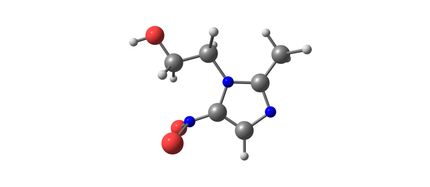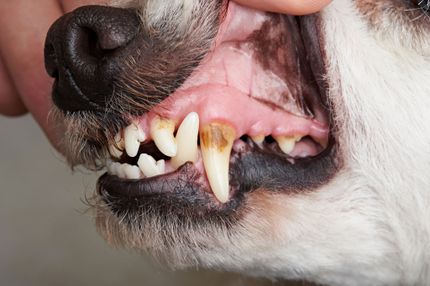A sudden change in behavior in dogs can be both physical and psychological. For example, extreme fear on New Year's Eve causes many dogs to seek shelter under furniture. Factors such as stress, pain and new living circumstances can also contribute to a change in behavior. It is always advisable to seek advice from a veterinarian if uncertainty persists.
Why is my dog behaving differently and isolating itself - why does it want to withdraw and be on its own?
Despite their ability to hide suffering well, there are some signs that may indicate a possible malaise in dogs. These include increased withdrawal, constant seeking of rest, apathy, lethargy, altered breathing and heart rates, heavy panting, salivating, cloudy eyes, pale mucous membranes and many others. It is important to know that each animal is individual and may express symptoms differently.
Possible reasons for behavioral changes in dogs
There are many possible causes of behavioral changes in dogs. Some of these include:
- Changes in the family environment, such as a move or a new family dynamic.
- Hormonal changes in female dogs in heat or male dogs that are aroused by them.
- Age-related changes where older dogs simply need more rest and sleep.
When should a veterinarian be consulted?
If you notice that the dog is showing sudden behavioral changes and isolating himself, it is important to evaluate the situation. Trust your instincts. If you think the dog is suffering or if you are concerned, you should not hesitate to consult a veterinarian.
It is often disconcerting for dog owners* to observe sudden behavioral changes in their pet. However, it is important to recognize such changes and act accordingly. Early intervention can be crucial in identifying the cause of the problem and finding appropriate solutions.
The following questions may also still be on your mind:
- Why is my dog not eating and isolating himself? There could be several reasons, including illness, pain or stress.
- Is it normal for my older dog to sleep a lot and isolate himself? Older dogs need more sleep, but a sudden change in behavior should always be taken seriously.
- What could be the cause of my dog's sudden behavioral changes? This could be caused by health problems, changes in the environment, or psychological stress.

Other behavioral abnormalities in the dog
- Aggressiveness: sudden aggressive behavior that was not previously present may be triggered by pain, fear, or territorial instincts.
- Excessive barking or yelping: This may indicate separation anxiety, boredom, attention seeking, or even physical problems.
- Destructive behavior: Chewing or destroying objects may be triggered by separation anxiety, boredom, or the need for attention.
- Frequent licking or biting of self: This may be a sign of skin problems, allergies, or psychological problems.
- Uncleanliness: if a previously housebroken dog suddenly wets the home, this may be due to medical problems, marking behavior, or even stress.
- Food envy or overeating: A sudden change in eating behavior may indicate medical or behavioral problems.
- Fearful behavior: A sudden withdrawal or fear of certain situations, noises, or people may be caused by traumatic experiences, lack of socialization, or genetic factors.
- Obsessive behavior: Repetitive, compulsive actions such as circling, chasing one's tail, or fixating on lights and shadows may indicate neurological problems or anxiety.
- Frequent whining: This can be a sign of pain, discomfort or attention seeking.
- Altered sleep patterns: A sudden change in sleep behavior, such as insomnia or excessive sleepiness, may indicate medical or psychological problems.
- Attachment or excessive cuddling: a sudden need for constant closeness may be triggered by separation anxiety, pain, or the need for comfort.
- Altered interaction with other animals or people: A sudden withdrawal or aggressiveness toward others may indicate pain, fear, or territorial instincts.
When a dog exhibits sudden behavioral problems, it is important to consult a veterinarian or an animal behavior therapist to determine the exact cause and find appropriate solutions.

What diseases can cause a dog to constantly withdraw?
- Pain: Joint pain (e.g. arthritis), toothache, abdominal pain, or pain from injury can cause a dog to withdraw.
- Neurological diseases: Diseases such as degenerative myelopathy, brain tumors, or other central nervous system disorders can cause behavioral changes.
- Endocrine disorders: Diseases such as diabetes, hypo- or hyperthyroidism can cause behavioral changes.
- Cardiovascular disorders: Heart problems can cause a dog to be less active and possibly withdrawn.
- Infectious diseases: Some infections can cause lethargy and withdrawal.
- Cancer: tumors, especially those that cause pain or affect the function of an organ, can cause behavioral changes.
- Visual or hearing impairment: Eye or ear problems can cause a dog to be less confident and withdrawn.
- Cognitive dysfunction: similar to Alzheimer's disease in humans, cognitive dysfunction in older dogs can lead to confusion, disorientation and behavioral changes.
- Gastrointestinal problems: Abdominal pain, nausea or other digestive problems can lead to behavioral changes.
- Genitourinary disorders: Problems with the kidneys or urinary tract can lead to pain and behavior changes.
- Respiratory diseases: Respiratory problems can lead to decreased activity and withdrawal.
If you notice the dog is constantly withdrawingor showing other behavioral or health signs (see list above), you should see a veterinarian as soon as possible. It is always best to identify and treat health problems early.




















